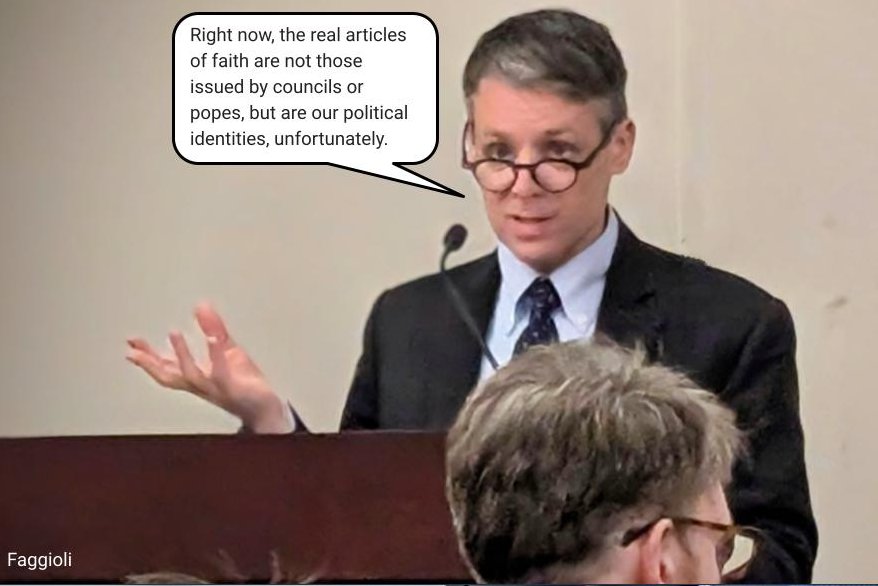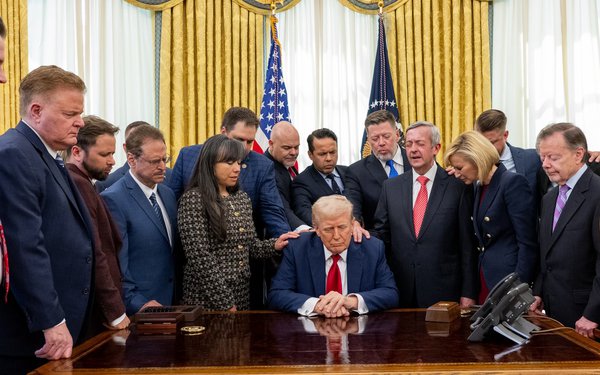
Growing up the son of an Italian Catholic
and an Ashkenazi Jew in New York City during the 1960s, I got to see antisemitism from all sides. It wasn't always great, but little did I know I was living in its Golden Age.
I learned that
while listening to a lecture by a theological authority on the subject, Villanova Professor Massimo Faggioli, at Fairfield University last night.
His topic was something I knew about --
"Catholics and Antisemitism" -- and it focused on Nostra Atetate, the Vatican's 1960s declaration updating the church's relationship with non-Christian religions, especially Jews.
Faggioli
said the relationship improved through the 70s and 80s, but has recently begun to erode at an "alarming" rate due not to religious beliefs, but political ones.
"Right now, the real articles of
faith are not those issued by councils or popes, but are our political identities, unfortunately," he asserted, alluding to the recent radical shift toward political intolerance and the rise of
fascism worldwide, especially in the U.S.
advertisement
advertisement
As someone who covers media and politics, that certainly is something I was aware of. The fact that leading theologians are alarmed about it is
not.
While the lecture did not touch on the role media has played in elevating political ideologies over spiritual beliefs, it is an obvious part of the pathology to me, because media --
especially social media, and conservative news media outlets -- have been weaponized to promote political, racial, gender -- and now apparently -- religious intolerance. So much so, that political
identities now supersede our most fundamental beliefs about what is right and wrong, according to a leading theologian.
The deprecation of faith relative to political identity is interesting,
of course, because of how Trump and the MAGA movement have appropriated religion -- primarily White Christian identity -- as part of their campaign and new administration.
And even as I was
listening to Faggioli lecture, I couldn't help wondering about an image promoted earlier in the day by the White House's social media team showing Trump at the center of an Oval Office prayer session
(see below). The White House didn't identify who the religious leaders gathered there were, or what religions they represented, but my guess is there wasn't a member of the Catholic clergy -- or a
rabbi, monk or Imam -- among them.

I can't speak for how
devout Trump actually is, but he certainly has figured out a way to leverage his religious following who also identify with his politics.
And I can't help imagining -- given that Trump already
has coronated himself "King," assumed the role of "Chief Law Enforcement Officer" -- if claiming to be the Almighty might not be next.
Following the lecture, I spoke with Fairfield University
Professor of Religious Studies Nancy Dallavalle, who organized the event, and asked her about the role media -- especially social media and political campaign media -- have played in the rise of
antisemitism and the shift from religious to political identities, and she concurred it is an area of study worth taking on.